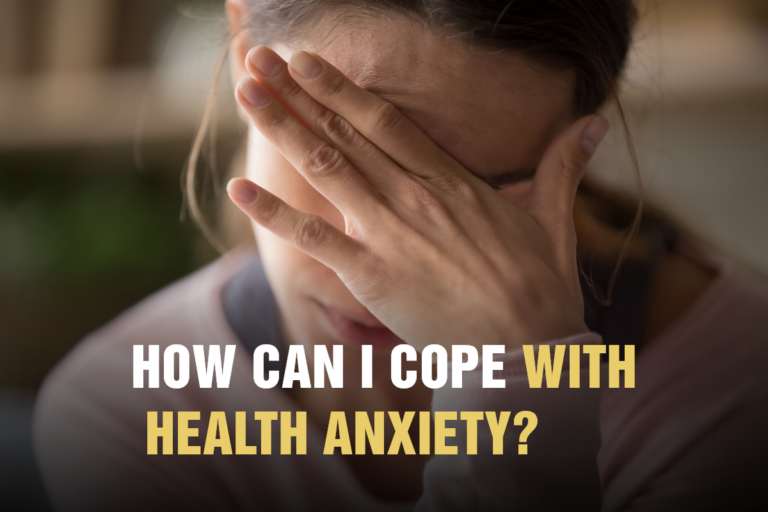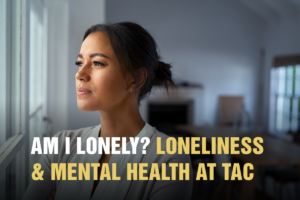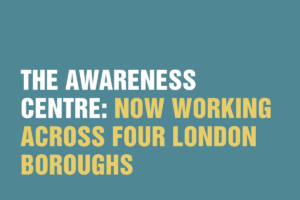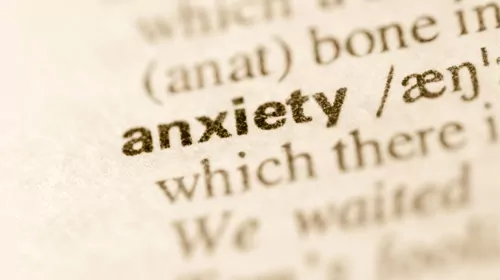If you spend a lot of time thinking you might be ill, or worrying that you might become ill, to the point that it starts to disrupt your daily life, you might have health anxiety, also known as hypochondria. This can be extremely stressful and affect your day to day life, such as concentrating on work or socialising with friends. To this end, it’s important to learn coping mechanisms to help you deal with your health anxiety to maintain a good quality of life.
In this blog, we’re going to talk more about health anxiety and some of the ways you can cope with it, as well as some of the common approaches to treating health anxiety.
What is Health Anxiety?
There are lots of different types of anxiety that people can suffer from. For example, people with social anxiety disorder might feel overwhelmed and uncomfortable in social situations, whereas people with generalised anxiety disorder might feel on edge and worried about lots of things all at once. People with health anxiety or illness anxiety disorder feel irrationally worried by their health. They often worry that they have something wrong with them, and they might get paranoid that they could develop a severe illness in the future. Like other anxiety disorders, this near-constant worrying can cause issues in other areas of life, such as work.
Health Anxiety Symptoms
If you have health anxiety, you might experience the following symptoms and behaviours:
- Persistently worrying that you’re in ill-health
- Routinely checking for symptoms of illnesses, such as looking for lumps or physical sensations like tingling or numbness
- Constantly reading health information online and keeping up with the latest health news
- Avoiding watching medical-themed TV shows if there’s a serious illness storyline
- Taking on the role of an ill person by avoiding certain activities as if you are ill
- Being concerned that doctors have missed something when testing you
- Regularly asking others for reassurance that you’re not ill
Physical symptoms
If you’re stressed about something, you might experience physical symptoms like a headache or an increased heart rate which you might associate with being ill, and this can heighten your anxiety.
How to Cope with Health Anxiety
Health anxiety can seem overwhelming, but there are a few things you can do that might help you to better manage your symptoms. They include:
Keep a diary
Lots of people with health anxiety find keeping a diary to be a good way of monitoring their anxieties. In your diary, make a note of how frequently you check your body for symptoms of an illness, research an illness online, or ask others for reassurance that you’re not ill. Over time, try to reduce the amount of times you exhibit these behaviours. This can be slightly easier to do if you have a reference point. For example, one week you might make a note that you read health information five times, so the next week you might try and reduce it to four.
Challenge your feelings
It can be useful to sometimes try and counteract the thoughts you’re having with more rational thoughts. To do this, it’s handy to make a table with two columns. In the first column, write down your health anxiety thoughts, and in the second column, try and think of a rational reason as to why you might think or feel the way you do. For example, in the first column you might write that you’ve been having headaches that are worrying you, and in the second column you might counteract that with rational reasons why you’re having headaches, such as too much screen time, excess stress, or dehydration.
Stay busy
When you notice that you have an urge to check information online or check yourself for signs of illness, try and do something else instead. For example, you might choose to go for a walk, do some cleaning, or go to the shops. Some people find this distraction technique useful.
When to Speak to a Doctor About Health Worries
Sometimes, self-help coping mechanisms don’t work. If you’ve tried some of the above techniques but are still struggling to cope with your health anxiety, it might be best to speak to a doctor. Make an appointment with your GP if you feel like you can’t live a normal, everyday life as a result of your health worries. If your GP diagnoses you with health anxiety, there are a few different treatments they might recommend, including:
Psychological therapy
You might be referred to a mental health professional to undertake therapy. Psychological therapy like cognitive behavioural therapy (CBT) can be useful for people who suffer with health anxiety. CBT can challenge your feelings, the way you think, and your thought patterns. You’ll learn coping mechanisms and, after a cycle of treatment, might be able to better control your health anxiety and resume living a life that isn’t dominated by negative thoughts.
Medication
Sometimes, medication can prove to be a highly effective way of managing anxiety. There are a few different types of anxiety medications available, and your GP will be best placed to help you find the right one.
Challenging Health Anxiety at The Awareness Centre
At The Awareness Centre, we have a specialist team of therapists and counsellors who can help you with your health anxiety through talking therapies such as CBT. Our therapists have helped lots of people with health anxiety to overcome their concerns, and we could help you, too.
We offer in person, over the phone, and online appointments, and we’re available seven days a week. If you’re struggling to get a handle on your health concerns and are noticing that they’re overwhelming your life and interfering with your work or relationships, please get in touch with us to arrange an appointment.







